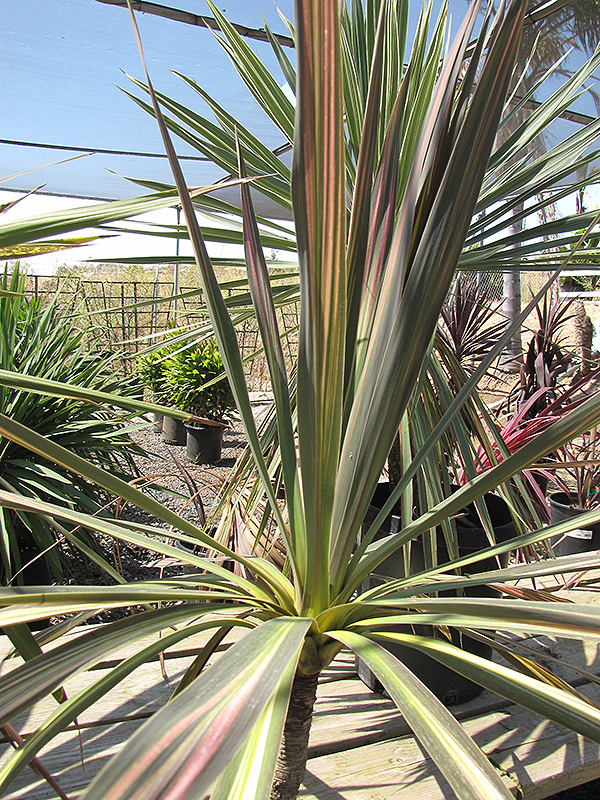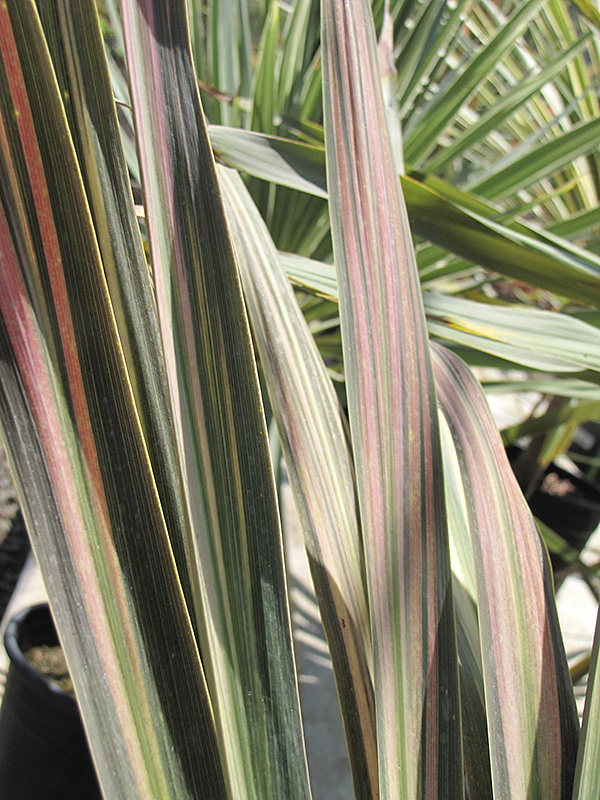PLANT FINDER
Kiwi Cabbage Palm
Cordyline australis 'Kiwi'
Height: 15 feet
Spread: 5 feet
Sunlight:
![]()
![]()
Hardiness Zone: 8b
Other Names: Cabbage Tree, Giant Dracaena
Description:
Stunning leaves streaked in shades of pink, cream, and green; spectacular when massed on the landscape; perfect for adding a lush, tropical look to the garden or containers
Ornamental Features
Kiwi Cabbage Palm features showy panicles of fragrant white flowers in early summer. It has attractive grayish green foliage with creamy white stripes and tinges of pink. The sword-like leaves are highly ornamental and remain grayish green throughout the winter.
Landscape Attributes
Kiwi Cabbage Palm is an open multi-stemmed evergreen shrub with an upright spreading habit of growth. Its relatively coarse texture can be used to stand it apart from other landscape plants with finer foliage.
This shrub will require occasional maintenance and upkeep, and should never be pruned except to remove any dieback, as it tends not to take pruning well. It has no significant negative characteristics.
Kiwi Cabbage Palm is recommended for the following landscape applications;
- Accent
- Mass Planting
- Hedges/Screening
- Container Planting
Planting & Growing
Kiwi Cabbage Palm will grow to be about 15 feet tall at maturity, with a spread of 5 feet. It has a low canopy with a typical clearance of 3 feet from the ground, and is suitable for planting under power lines. It grows at a medium rate, and under ideal conditions can be expected to live for approximately 10 years.
This shrub does best in full sun to partial shade. It does best in average to evenly moist conditions, but will not tolerate standing water. It is not particular as to soil type or pH, and is able to handle environmental salt. It is somewhat tolerant of urban pollution. This is a selected variety of a species not originally from North America.
Kiwi Cabbage Palm makes a fine choice for the outdoor landscape, but it is also well-suited for use in outdoor pots and containers. Its large size and upright habit of growth lend it for use as a solitary accent, or in a composition surrounded by smaller plants around the base and those that spill over the edges. It is even sizeable enough that it can be grown alone in a suitable container. Note that when grown in a container, it may not perform exactly as indicated on the tag - this is to be expected. Also note that when growing plants in outdoor containers and baskets, they may require more frequent waterings than they would in the yard or garden.
A NetPS Plant Finder tool


